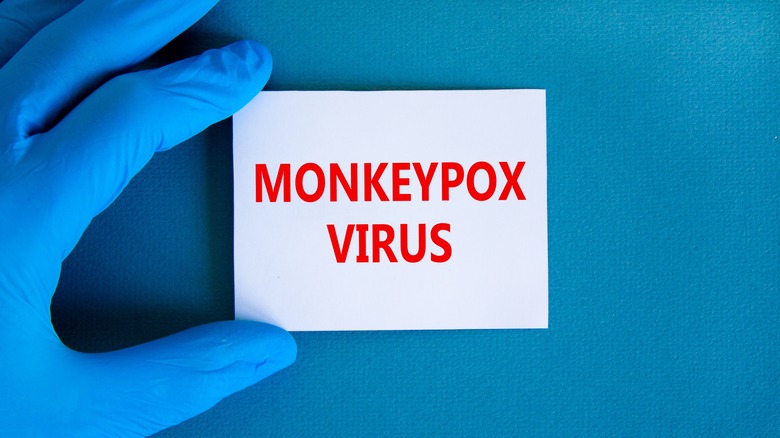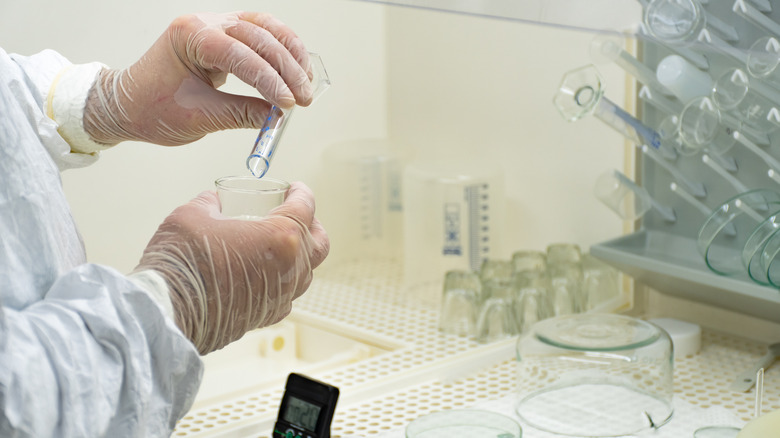The US Has A Vaccine Available For Monkeypox But It May Cause Serious Side Effects
As the global spread of monkeypox continues to puzzle health experts, the United States is responding to a request for a release of its small supply of monkeypox vaccine from the Strategic National Stockpile (per CNN). As of May 24, there is one confirmed case and six suspected cases of monkeypox in the U.S. Although the disease has been endemic in parts of Africa for years, it is unusual to see it spreading throughout Europe and other western countries, TIME reports.
The U.S. now has around 1,000 doses of a Danish-made vaccine called Jynneos, which is effective in preventing both smallpox and monkeypox, and more doses are expected (via TIME). This vaccine is recommended for high-risk, close contacts of those patients with confirmed cases.
Since the smallpox and monkeypox viruses are somewhat similar, it is thought that another, older smallpox vaccine called ACAM2000, which is licensed for use in the U.S. and more abundant, with more than 100 million doses available, could also be used to prevent monkeypox. But experts are cautious in recommending it for most people.
The available vaccine for monkeypox carries significant risks
Dr. Jennifer McQuiston, deputy director of the Division of High Consequence Pathogens and Pathology within the CDC's National Center for Emerging and Zoonotic Infectious Diseases, said "ACAM2000 is an older-generation smallpox vaccine that has some potential significant side effects with it. So a decision to use that widely would have to have some serious discussion behind it" (via CNN).
ACAM2000 is different from other vaccines. When administering it, according to the FDA, the healthcare provider pokes the skin 15 times with a needle containing the vaccine. Since the vaccine contains a live virus, it is possible to spread the virus to other parts of the body or to other people after being vaccinated if you first touch the vaccination site and then come in contact with others. Also, the vaccine carries a significant risk of serious heart problems, including myocarditis and pericarditis, as well as swelling of the brain or spinal cord, and severe allergic reactions.


